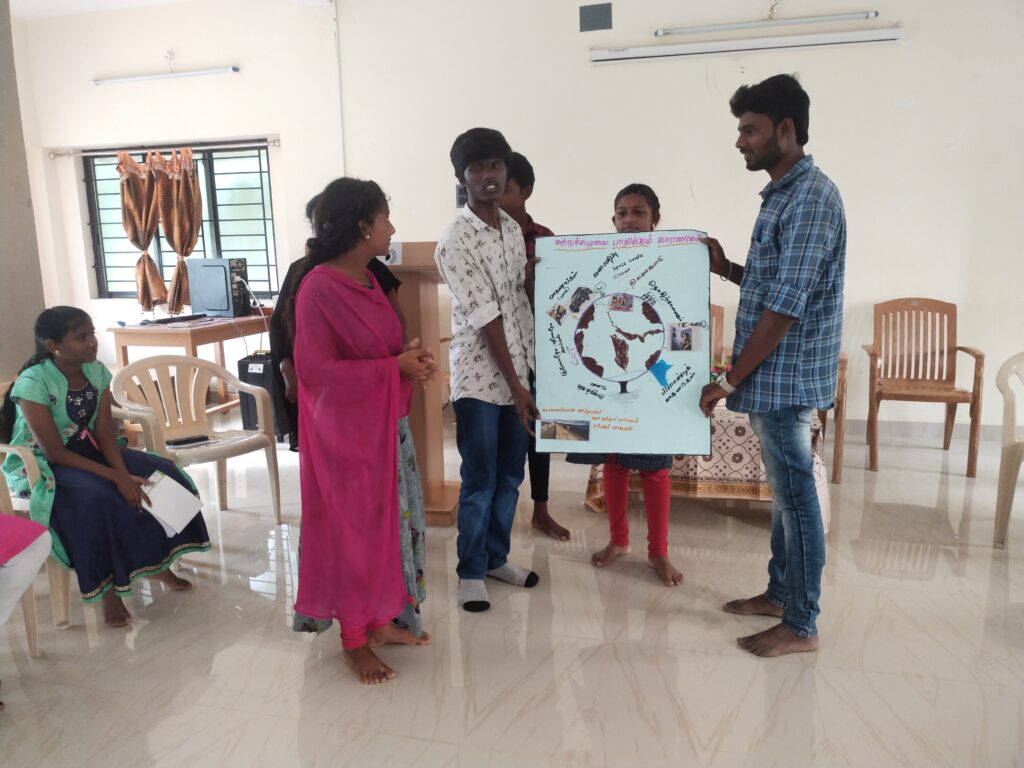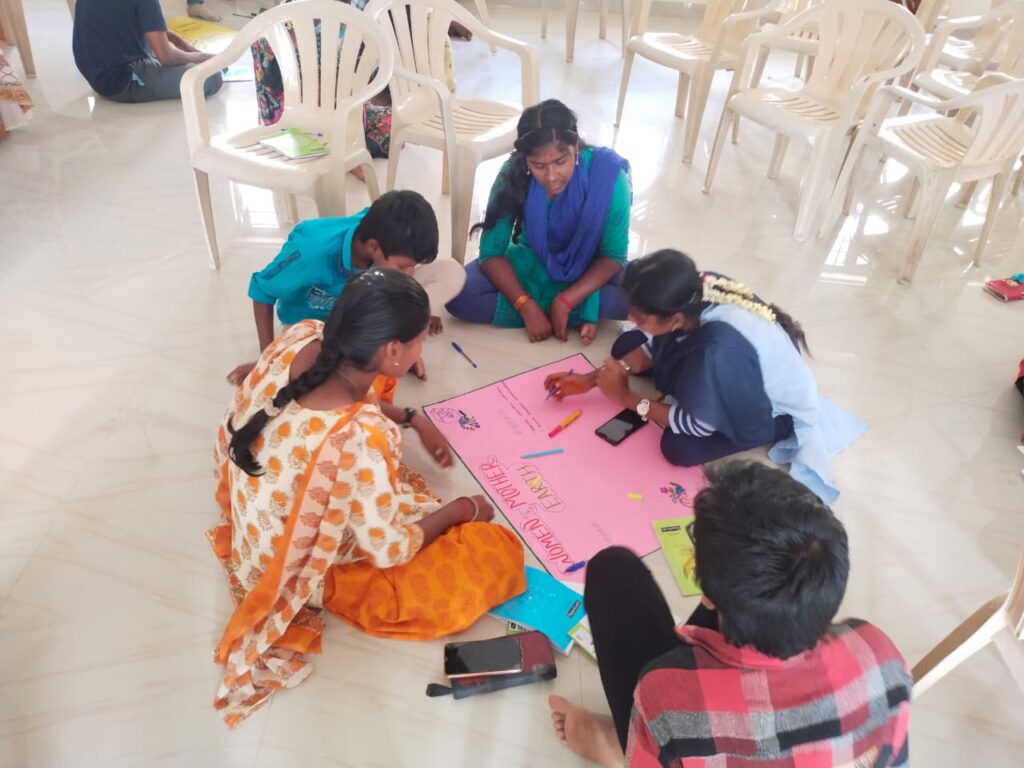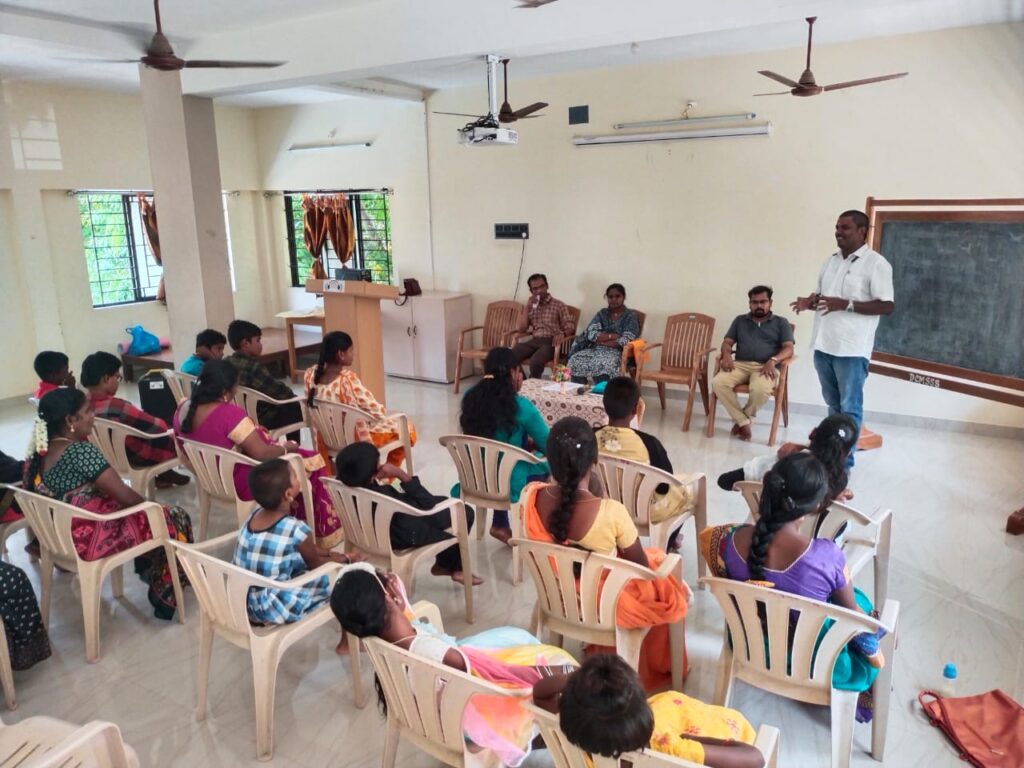


Moorthy, like many young boys, used to believe that men were superior to women, following the mindset of patriarchy. In the past, he disrespected women, as was unfortunately common. However, a series of ongoing youth capacity-building training sessions led to a significant change in Moorthy. These training programs aimed to empower young individuals and brought about a new perspective within him.
A three-day training program, Module V on “Women and Mother Earth,” was a crucial part of the Capacity Building Training for Youths initiative. This program received strong support from the Social Inclusion and Democracy unit of the Indian Social Institute in Bengaluru. In collaboration with various partner NGOs in the Trichy zone, including the TNBC Commission for SC/ST, DCMSSS, and RCDC Trust, the training program successfully gathered a diverse group of 38 enthusiastic and motivated youths, including 16 males and 22 females, all eager to participate and learn.
For young Binu Josephine, this training program became a profound source of enlightenment. It broadened her understanding of the critical role women play in the context of Mother Earth and the human community. During the training, Binu realized the deep and intricate relationship between women and the environment. She recognized the interconnectedness of women’s well-being and the health of our planet. This newfound awareness highlighted the significance of women’s roles not only within their families but also in nurturing and preserving Mother Earth.
Binu’s journey illustrates the power of education and awareness in fostering a deeper understanding of our world and our responsibilities as members of the human community. Her appreciation of the bond between women and the environment emphasizes the importance of recognizing and nurturing this relationship for the betterment of our planet and society as a whole.
Participants in the training gained insights into principles of gender equality, emphasizing the importance of treating everyone fairly regardless of their gender. The program explored the multifaceted roles women play in families and society, highlighting their contributions and significance. It also showcased the achievements and leadership roles of women, inspiring future leaders. The training educated participants about women’s rights and the importance of advocating for them. Additionally, it fostered understanding and empathy by addressing the unique challenges faced by transgender and sexual minority individuals. The program also emphasized environmental safety, with a focus on Sustainable Development Goal 13 (SDG 13), which relates to Climate Action.
This comprehensive training not only provided knowledge but also instilled a deeper appreciation for the importance of gender equality and environmental responsibility in the participants. This newfound awareness equipped them with the tools to make positive contributions to their communities and society at large, aligning with the broader goals of promoting gender equity and environmental sustainability.
Prem Kumar,
Programme Facilitator
Tamil Nadu-Puducherry
